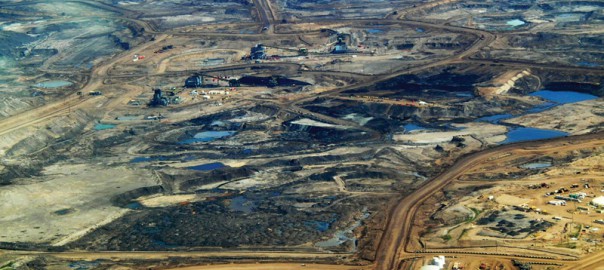It’s a common environmentalist trope that we’re addicted to oil. The analogy is simple: Our dependence on the stuff and the inability to kick it is similar to a junkie’s addiction to dope. Naysayers to the idea will point out that unlike addicts who put substances into their body, fossil fuel abuse is just a dramatic progressive talking point and not really rooted in true addictive behavior. However, there are other addictions — porn and gambling come to mind — that don’t require the introduction of drugs or alcohol to the body either and the behavior of a drug or alcohol addict and gas-and-oil abuser are strikingly similar.
For instance, most addicts will tell that you that their drug of choice worked in the beginning. The booze or pills or dope helped mask the pain, discomfort, lack of self-esteem or any number of underlying issues with addiction. The problems began when the self-medication stopped working and caused more harm than help. A non-addict quits at that point; whereas the alcoholic or junkie continues on, often to the point of destruction.
Likewise, oil worked in the beginning. It helped build countries. It made life in rural lands and the suburbs more convenient. It kept us warm in the winter. Airplane travel made the world smaller and opened up places to the average person. Petroleum products and plastics offered a vision of a Utopian future for mankind. And then 100 years of unfiltered, barely regulated carbon and other emissions pumped into the atmosphere started to change our climate and yet, like the addict, we aren’t able to quit.
At the first sign of trouble, a lot of addicts, afraid of quitting what has worked until then, will try and control the addiction. Maybe only drink on weekends or cut back on the number of pills. Aware of the issue, the addict first try’s to mitigate the action needed to deal with the addiction, though to no avail. The disease is there and trying to outsmart it is futile.
We oil addicts do the same. We raise gas mileage requirements in cars, though not right away (50 mpg by 2025). We say we will drive less. We recycle what we can. We talk about the need go solar or be wind-powered but we continue to drill for oil and gas and jump for joy when gas prices come down (as they have recently). But, like the drug addict or alcoholic, we still use.
So how does an addict stop and stay stopped? Addiction recovery comes in many sizes and shapes though the ones that work have one basic tenet: abstinence. Whether you go to a 12-step program or try something else, the defining thing for addicts in recovery is that they don’t use anymore. Not one bit. Their addiction is a crisis, like a house on fire. And, first things first, you need to put out the fire. You can figure out how it started (and how you’re going to live clean) later. The first step is stopping.
Likewise, for oil abusers. Cutting back nominally isn’t going to cut our addiction or stop climate change. That action has to be more than gradual, more than cursory. It needs to be radical and treated like the crisis that it is. We need to stop now, completely. Subtle gestures, like recycling my coffee cup lid isn’t going to cure what ails us and waiting too long, as with any addict, spells an unpleasant result.
Source: Poughkeepsie Journal
